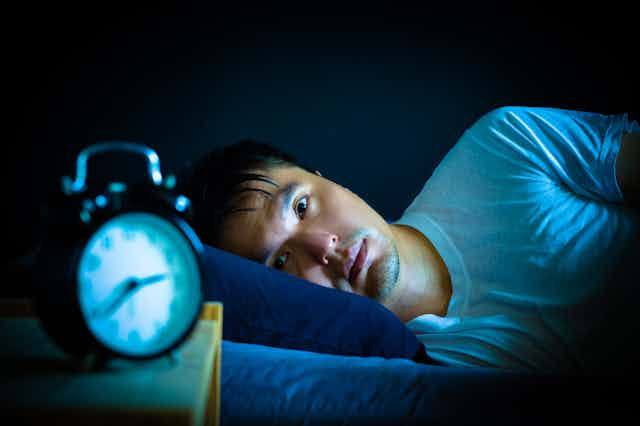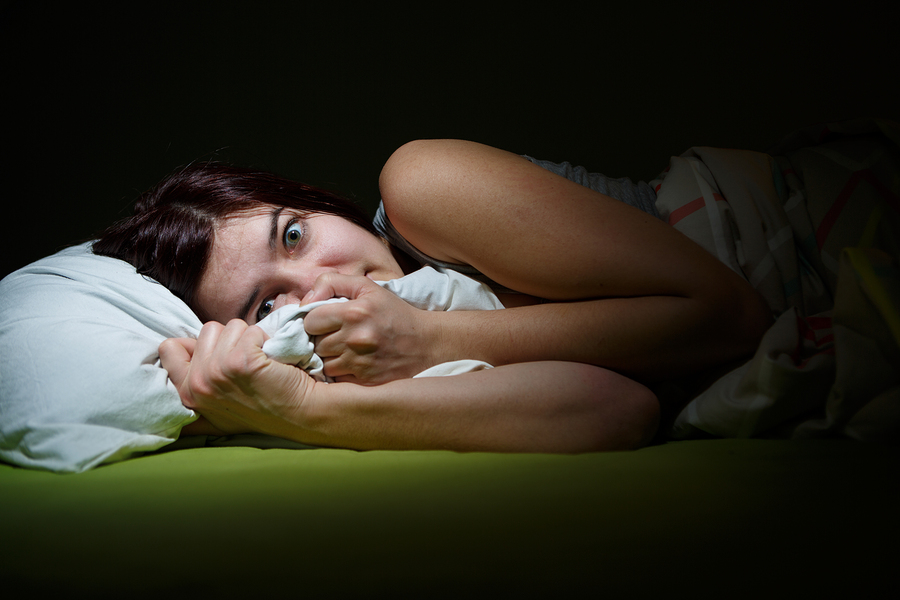This article was analyzed by Serge, MSc. Leveraging expertise in Biochemistry and Chemical Quality Control, I share insights and recommendations backed by research and clinical evidence to ensure you find safe and effective supplement solutions.
For years, I thought good sleep was simply about building the right routine. I tried everything I read in blogs and wellness magazines: warm milk at night, blackout curtains, cutting out late-night YouTube, and keeping a consistent bedtime. They all helped a little, but not enough.
The truth is, my real problem wasn’t my environment. It was my mind. Every night when I laid down, my thoughts would rush in: regrets from the day, imagined conversations, worries about tomorrow. Even when I was exhausted, I couldn’t shut off the noise.
It wasn’t until I addressed the mental and emotional causes of my insomnia, and later, explored the world of botanical remedies as part of my professional curiosity, that things finally shifted. Today, I fall asleep quickly, I don’t panic if I wake up at 3 a.m., and most importantly, I no longer live in fear of “another bad night.”
Here’s exactly what worked for me.
Step 1: Stop Fighting the Mind at Night.
When I first tried to sleep better, I focused only on my body. I darkened my room, avoided caffeine, and even stopped scrolling in bed. But while my body was ready, my mind was restless.
Meditation was my turning point. By sitting quietly and observing my thoughts, I noticed what really kept me awake: endless loops of self-criticism, overthinking, and replaying the past. Instead of fighting these thoughts, I began letting them come and go. Over time, this practice taught my brain not to see bedtime as a battle.
If you’re struggling with racing thoughts, try a **bedtime brain dump**: before you get into bed, write down everything swirling in your head. This simple ritual tricks your mind into letting go, because what’s written down doesn’t need to be remembered at 1 a.m.

Step 2: Break the Fear of Bad Sleep.
Oddly enough, one of the hardest parts of insomnia wasn’t lack of sleep itself, it was the fear of not sleeping.
I used to lie in bed thinking, “If I don’t fall asleep now, tomorrow will be ruined.” That pressure made me tense, and the tension made me even more awake. The cycle fed itself.
The real breakthrough came when I stopped treating a bad night as a disaster. I realized: one rough night doesn’t wreck my life. People stay up with sick kids or work overnight shifts and still function. Once I removed the fear, my body relaxed, and ironically, sleep came easier.
Lesson: Sleep improves when you stop demanding perfection from it.

Step 3: Understand the Role of Stress Hormones.
At one point, I learned about cortisol, the body’s main stress hormone. Cortisol is useful in small doses, it helps us wake up in the morning. But if stress keeps it elevated late into the night, the body stays on “high alert.” That’s why people under chronic stress often wake up at 2 or 3 a.m. and can’t fall back asleep.
To lower cortisol naturally, I started doing:
- Light exercise in the morning to regulate circadian rhythm,
- Deep breathing before bed (inhale 4 seconds, exhale 6 seconds),
- Journaling to unload worries,
- Practicing gratitude instead of rehashing problems.
When my nervous system felt safe, sleep followed.

Step 4: Bringing in Herbal Wisdom.
As a seasoned botanist, I was fascinated by how plants that humans have used for centuries often have a quiet, subtle way of working with our bodies. Once I had addressed the mental side of insomnia, I naturally wanted to explore whether herbs could support the process.
Here’s what both my research background and practical experience taught me:
1. Melatonin (a hormone, not a herb).
Melatonin is especially useful when your body clock is out of sync, such as after traveling across time zones, working night shifts, or dealing with occasional short-term insomnia.
What many people don’t realize is that melatonin is not a “stronger is better” supplement, in fact, small doses, usually around 1–2 mg taken an hour or two before bedtime, tend to work better than higher amounts.
It doesn’t act like a sleeping pill that knocks you out; instead, it gently signals to your body that it’s time to wind down. For long-term use, medical guidance is recommended.

2. Magnesium.
Magnesium isn’t an herb, but it’s one of the most important minerals for overall health, and many people don’t get enough of it in their diet.
Low magnesium can contribute to restless muscles, nighttime cramps, and an overactive nervous system, all of which make it harder to settle into deep sleep.
Taking a gentle, well-absorbed form like magnesium glycinate (around 200 mg in the evening) can promote relaxation without the digestive side effects that some other forms cause. It doesn’t sedate you, but it helps the body feel calm and ready for rest, making sleep come more naturally.

3. Chamomile.
Chamomile is one of the most traditional bedtime remedies, often enjoyed as a calming tea before sleep. Beyond its soothing aroma and ritual, chamomile contains a natural compound called apigenin, which binds to specific receptors in the brain and encourages relaxation.
Research shows that while chamomile may not knock you out instantly, it can gently improve sleep quality, particularly by reducing nighttime awakenings and helping people feel more rested in the morning. For many, simply pairing the warm cup of tea with a quiet evening routine creates both a physical and psychological signal that it’s time to wind down.

4. Valerian Root.
Valerian is one of the most researched herbal sleep aids. Evidence is mixed, some studies show modest improvements, others little effect. In my experience, it tends to help more after consistent use for 2–4 weeks.

5. Passionflower and Lemon Balm.
Passionflower is a gentle calming herb traditionally brewed as tea or used in tinctures. Early studies suggest it helps quiet anxious thoughts and promote restful sleep. Many people find it especially helpful for easing restlessness at bedtime without strong sedative effects.

Lemon balm, a fragrant member of the mint family, has been used for centuries to lift mood and calm the nervous system. Modern research indicates it may reduce mild anxiety and support better sleep, particularly when combined with other relaxing herbs.

6. L-theanine.
An amino acid found in green tea. It isn’t sedating but promotes a state of calm alertness, which is ideal when anxious thoughts are the barrier to sleep.

What to Avoid.
Kava — although used traditionally for relaxation, it’s linked to liver damage. I never recommend it as a routine sleep aid.
Mixing too many herbs at once — if you want to experiment, try one at a time for a few weeks and track your sleep patterns.
Botanist’s rule of thumb:Herbs are gentle teachers. Their effects are subtle, cumulative, and highly individual. Respect them, start small, and pay attention to how your body responds.
Step 5: Build a Healthy Relationship With Sleep.
The biggest lesson I’ve learned is that sleep isn’t something you can force. It’s more like a shy guest: the more pressure you apply, the more it slips away.
Instead of chasing sleep, focus on creating the right conditions:
– A cool, dark, quiet bedroom.
– No heavy meals or caffeine late in the evening.
– A consistent wake-up time (even on weekends).
– A calming wind-down ritual (reading, stretching, meditation, or herbal tea).
Over time, these cues train your body and mind to associate nighttime with rest.
Summary.
Having struggled with insomnia myself and explored plants deeply as a botanist, I’ve realized that sleep is equal parts science and art.
The science tells us about cortisol, circadian rhythms, and neurotransmitters. The art comes from listening to ourselves, addressing our fears, and sometimes turning to nature for quiet support.
I no longer think of sleep as a nightly struggle. By addressing my mindset, calming stress, and using herbs wisely, I’ve built a healthier relationship with rest. Now, even if I have a restless night, I don’t spiral into fear. I trust that my body, with a little help from both inner calm and botanical wisdom, knows how to recover.
If you’re struggling, start small. Reflect on your thoughts at bedtime, ease up on the pressure to “sleep perfectly,” and try safe, natural supports if you want.
Remember, supplements can help, but peace of mind is the strongest sleeping pill of all.












